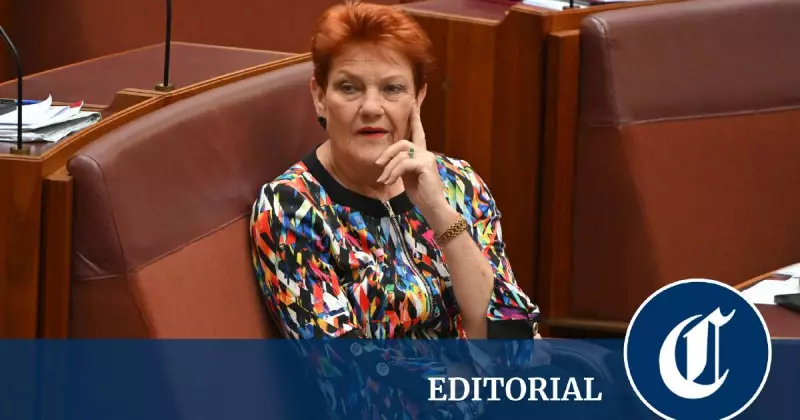
Hanson's Repeat Performance Draws Swift Rebuke
In a move that surprised few political observers, One Nation leader Pauline Hanson staged another controversial protest in the Senate on Monday, November 25, 2025. The veteran politician entered the upper house wearing a burqa shortly after failing to pass legislation that would ban the Islamic garment from public spaces.
The stunt represented an exact replay of her widely condemned 2017 performance, attracting similar levels of criticism from across the political spectrum. The Senate responded by censuring Senator Hanson and suspending her for seven days, though not before she delivered her characteristic fighting words upon being ejected from the chamber.
A Pattern of Controversial Behaviour
After being ordered to remove the burqa and refusing to comply, Hanson defended her actions by claiming face coverings presented a national security issue. However, she failed to provide any concrete examples of security risks associated with garments like the burqa.
Nationals senator Matt Canavan offered sharp criticism from within the chamber, suggesting Hanson needed new material. He observed that while such stunts might appeal to a small fringe element, middle Australia does not appreciate parliament being debased in this manner.
The Coalition, which Mr Canavan represents, finds itself in a delicate position as it attempts to win back moderate voters who have moved away from the Liberal and National parties due to their increasingly right-wing tendencies.
Deeper Implications for Australian Politics
What many find particularly frustrating about Senator Hanson's behaviour is the constant focus on fringe issues that do not affect or concern most Australians. While it's tempting to dismiss her as unserious and unthreatening, her three-decade presence in Australian public life suggests otherwise.
Politicians from across the spectrum—Labor, Liberal, National, Green and Independent—were quick to condemn Hanson's latest actions, criticizing both their crassness and poor timing. Yet despite this widespread disapproval, she maintains a small but devoted following that applauds such controversial demonstrations.
Since her infamous maiden speech in 1996, Hanson has built a brand around aggrieved rhetoric that often crosses into racism, bigotry and xenophobia. Rather than ignoring her predictable antics, many Australians see her as a reminder of what their country is not—and what it should aspire to be better than.





